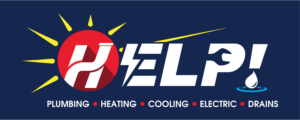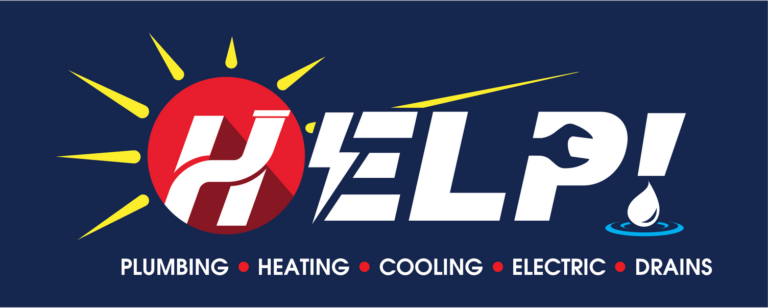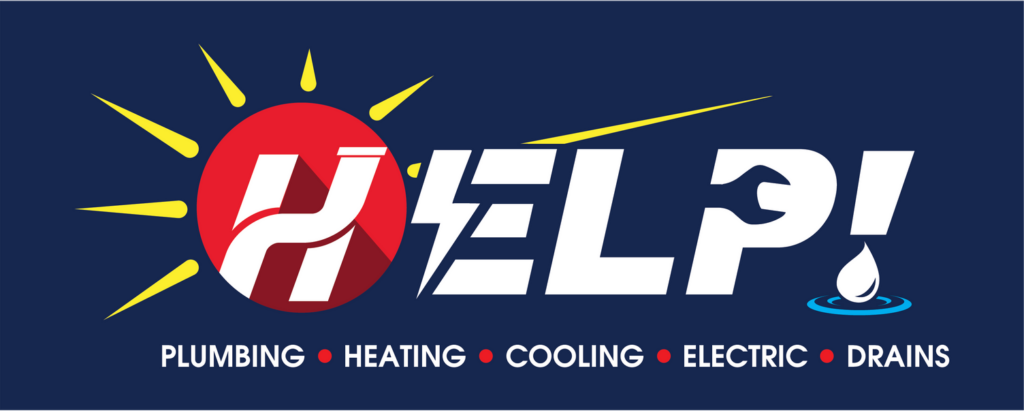Frequently Asked Questions
HELP Plumbing, Heating, Cooling and Drains is proud to provide homeowners with the answers they need to all their electrical service questions. Get the answers you need to the questions you have below.
HVAC Service FAQs
It’s recommended that you schedule heating maintenance at least once before each winter, preferably in the early fall. Doing this will keep your manufacturer warranty active and will also help:
- Improve energy efficiency
- Increase system performance
- Decrease repair requests
- Lower heating bills
- Extend the system’s life span
The cost to install heating in your home largely depends on the type of heating system you choose, how powerful it is, and how large your home is.
Speak to a heating specialist to understand your options and make the most informed decision for your heating installation or replacement needs.
With annual maintenance, most heating equipment should last between 15 and 20 years. However, poorly maintained, improperly installed, or faulty equipment could prematurely break down and lead to quicker replacement requests.
Before turning on your heat for the first time ahead of the winter, it’s recommended that you take the following steps:
- Power off, clean, and cover your outdoor air conditioner unit
- Replace your furnace’s air filters
- Schedule heating maintenance
- Run your heating system at least three times during the early fall to test for malfunctions
Contact Us Today!
Air Conditioning
Air conditioners actually run longer and stronger when left on all day instead of being shut off completely. Some homeowners might think turning their AC off while they aren’t home will save them money, but they may be doing more harm than good. Instead of turning off your unit entirely, consider installing a programmable thermostat to increase the temperature in your home while you’re away, cooling it off when you return. This method will help you save money while protecting your AC from overworking.
If you notice that your air conditioner requires refrigerant recharging every year, you may have a refrigerant leak on your hands. Not only is this bad for your cooling capacity and energy efficiency, but it’s also bad for the environment. Contact your AC technician to alert them to the problem so you can get the air conditioning repair services you need.
Like your heating equipment, your AC unit should receive annual maintenance to ensure it can meet your comfort needs. This should be done in the early spring so you can identify any repair or replacement needs before the full heat of the summer settles in.
Heat Pumps
Indoor Air Quality
- Frequent headaches
- Dizziness
- Nausea
- Fatigue
- Itchy nose
- Scratchy throat
- Burning eyes
In more serious cases, residents may develop asthma, breathing disorders, or even cancer.
There are many available indoor air quality solutions that may be suitable for your home environment, depending on the severity of your indoor pollution. At HELP Heating & Cooling, our team offers the following indoor air quality solutions throughout the Greater Cincinnati area:
- Air cleaners
- Air filters
- Germicidal UVC lamps
- And much more!
Plumbing Service FAQs
Water Heaters
It’s recommended that your water heater receive professional maintenance at least once annually. However, your system may require more frequent maintenance depending on your manufacturer’s warranty specifications and whether or not your home has hard water.
With professional maintenance, your water heater should last between eight and 12 years.
Homeowners should consider water heater replacement if the following situations apply:
- The system is older than 12 years old.
- There have been increased water heater repair requests in recent months/years.
- The cost to repair the water heater is at least 50% of the cost to replace it.
Sewer Services
Tankless Water Heaters
Sump Pumps
Most sump pump drainage tanks can store between 15 and 25 gallons of water. Consult with your plumbing professional to decide which sump pump solution is best for your family’s needs
Electrical Service FAQs
Electrical Panels
- The main breaker panel is responsible for regulating the circuit breakers and electricity consumption in the entire home.
- A fuse box is comprised of small fuses designed to prevent circuits from overloading.
- Main lug panels run line wires into lugs to eliminate the need for a main breaker altogether.
- Subpanels get their energy from the main panel through a particular circuit, allowing homeowners to control the electrical consumption of specific members of their household.
Ceiling Fans & Lighting
Outlets & Switches
Wiring, Rewiring & Surge Protection
There are many ways that homeowners can test to ensure their home wiring was done correctly:
- Document every time a circuit breaker trips in your home
- Keep your eyes and ears open for flickering, buzzing, or dimming lights
- Look out for frayed or chewed wiring
- Identify any discolored, scorched, or smoking outlets or switches
- Feel for warm or vibrating wall outlets
- Smell for burning or smoky odors
If you notice any of the signs of faulty wiring impacting your home, get the HELP you need by scheduling rewiring services.


